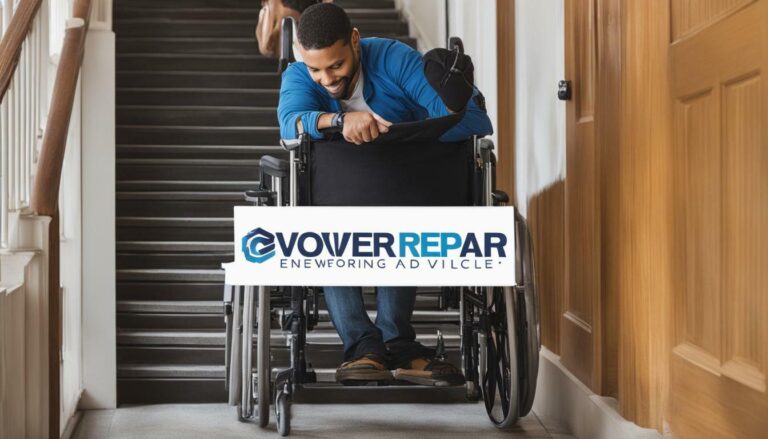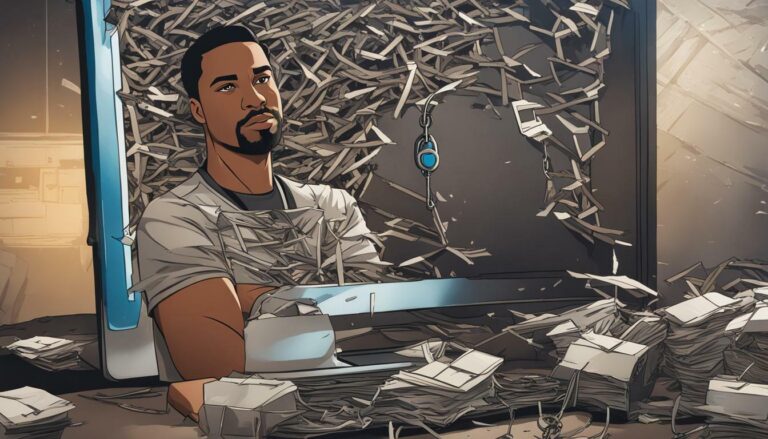Essential Credit Repair for Military Personnel: Your Guide

As a military personnel, understanding how to repair your credit is essential for maintaining your financial health and securing your future. Whether you’re a veteran or currently serving, having a guide to credit repair is invaluable. This guide will provide you with the necessary information and techniques to navigate the credit repair process effectively.
- Repairing your credit is something you can do yourself without paying a third party.
- Paying bills on time and disputing inaccurate information are essential steps in credit repair.
- Understanding the key factors that affect your credit score, such as payment history and credit utilization, is crucial.
- Military-specific credit repair techniques include reducing credit utilization and paying down balances.
- Be cautious of credit repair agencies that promise to remove accurate negative information from your credit report.
Understanding Credit Repair Basics
When it comes to credit repair, military personnel have various options to improve their credit scores and financial standing. It’s important to know that you don’t have to pay a third party to repair your credit. The basic steps to repair your credit are things you can do yourself, such as paying on time, disputing inaccurate information, and reducing your credit utilization. By taking control of your finances and understanding the factors that affect your credit score, you can work towards improving your creditworthiness.
The key factors that affect your credit score include payment history, available credit, length of credit, types of credit, and credit inquiries. Of these factors, payment history is the most important. The best way to start repairing your credit is by making consistent on-time payments. Before applying for major lines of credit, like VA home loans or auto loans, make sure you have at least 12 months of consistent, on-time payments on all your financial obligations.
Military personnel can employ specific credit repair strategies to enhance their credit standing. For example, reducing credit utilization and keeping balances below 50% can positively impact credit scores. It’s also advisable to avoid opening new credit card accounts and instead focus on paying down existing balances. However, it’s important to note that closing credit card accounts may not always be beneficial, as the age of your credit accounts matters. Older accounts are viewed more favorably by lenders.
When undertaking credit repair, it’s crucial to be cautious of third-party credit repair promises. No credit repair agency can legally remove accurate negative credit information from your account. Avoid paying upfront fees or trusting anyone who promises to remove accurate data. Instead, it’s important to be proactive and take advantage of resources available to you. Requesting a free annual credit report allows you to review your credit history and identify any errors that may be negatively impacting your score. Additionally, consider utilizing the Government Travel Charge Card Program to develop responsible credit use and improve your financial situation.
🚨 TUIC Errors + Low Credit Score?
CreditScoreIQ helps you build credit faster by reporting utility bills to all 3 bureaus—while you dispute errors.
Start Building Credit Today →
To effectively repair your credit, it’s vital to understand the key factors that impact your credit score. These factors play a significant role in determining whether your credit is considered good or bad by lenders. By focusing on these factors, you can take steps to improve your score and ultimately achieve your financial goals.
Payment History
Your payment history is the most important factor when it comes to your credit score. Lenders want to see that you consistently make your payments on time, as missed or late payments can have a negative impact. By paying your bills on time, you demonstrate to lenders that you are a responsible borrower and can be trusted to repay your debts.
Credit Utilization
Another key factor is your credit utilization, which refers to the amount of available credit you are using. It is recommended to keep your credit utilization below 30% to maintain a good credit score. By reducing your credit card balances and keeping them below this threshold, you show that you are using credit responsibly and not maxing out your available credit.
Length of Credit
The length of your credit history also matters. Lenders like to see a long and established credit history, as it gives them more information to assess your creditworthiness. If you have a shorter credit history, it is important to start building it by opening and responsibly managing credit accounts.

Types of Credit
The types of credit you have also impact your credit score. Having a mix of different types of credit, such as credit cards, loans, and mortgages, can demonstrate that you can handle various forms of credit responsibly. However, it is important to only take on credit that you need and can manage effectively.
It’s worth noting that closing credit card accounts may not always be beneficial, as the age of your accounts also matters. Older accounts are viewed more favorably by lenders, so think twice before closing an account as it may negatively impact your credit history.

Credit Inquiries
Finally, credit inquiries can also affect your credit score. When you apply for new credit, such as a loan or credit card, a hard inquiry is made on your credit report. Multiple hard inquiries within a short period of time may raise concerns for lenders, as it could indicate that you are taking on too much debt or are in financial distress. It’s important to be mindful of the number of credit inquiries you have and only apply for credit when necessary.
By understanding these key factors that impact your credit score, you can take proactive steps to repair and improve your credit. Whether it’s making timely payments, reducing your credit utilization, or diversifying your credit types, each action you take can have a positive impact on your creditworthiness and financial well-being.
| Credit Score Factors | Importance |
|---|---|
| Payment History | Most Important |
| Credit Utilization | High |
| Length of Credit | Medium |
| Types of Credit | Medium |
| Credit Inquiries | Low |
Strategies for Credit Repair as a Military Personnel
As a military personnel, there are specific strategies you can employ to repair your credit and improve your financial situation. By following these techniques, you can take control of your credit and work towards a better future. Here are some key strategies to consider:
- Reduce Credit Utilization: One of the most effective ways to improve your credit score is by reducing your credit utilization. Aim to keep your credit card balances below 50% of your available credit. By lowering your credit utilization, you show lenders that you are responsible with your credit and can manage it effectively.
- Pay Down Balances: Another important step in credit repair is paying down your existing balances. Focus on paying off your debts, starting with the highest interest rate or the one with the lowest balance. By reducing your overall debt, you improve your credit utilization ratio and demonstrate financial responsibility.
- Avoid Opening New Credit Card Accounts: While it may be tempting to open new credit card accounts, it’s best to avoid doing so during the credit repair process. Opening new accounts can lower the average age of your credit history, which can negatively impact your credit score. Instead, focus on utilizing your existing credit responsibly.
It’s important to note that closing credit card accounts may not always be beneficial. The age of your credit accounts matters, as older accounts are viewed more favorably by lenders. Consider keeping your older accounts open to maintain a positive credit history.
“Reducing your credit utilization, paying down balances, and avoiding new credit card accounts are key strategies for credit repair as a military personnel.”
While there are reputable credit repair companies that can assist with the credit repair process, it’s essential to do thorough research and not rely solely on these services. Some credit repair companies may make false promises or charge excessive fees. You have the option to repair your credit yourself by disputing errors, paying bills on time, paying off debt, and being patient.
Additional Resources for Military Personnel
As a military personnel, you can benefit from various resources available to assist with credit repair and overall financial well-being. Take advantage of the following:
- Free Annual Credit Reports: Review your credit report regularly to identify and dispute any inaccuracies. You are entitled to a free credit report each year from the three major credit bureaus.
- Military and Family Support Centers: These centers offer financial education, budgeting assistance, debt management, and other services to help military personnel navigate credit repair and other financial challenges.
- Government Programs: Explore government-sponsored credit programs, such as the Government Travel Charge Card Program, which can help you develop responsible credit use and improve your financial habits.
By utilizing these resources and implementing the strategies mentioned above, you can take control of your credit and achieve financial security as a military personnel.

While seeking credit repair assistance, it’s crucial to exercise caution and be aware of misleading promises made by some credit repair agencies. It’s important to understand that no credit repair agency can legally remove accurate negative credit information from your account. Be skeptical of any company that guarantees to erase accurate data or demands upfront payment.
Many credit repair agencies prey on vulnerable individuals, including military personnel, with promises of quick fixes and improved credit scores. However, these agencies often charge high fees for services that you can do yourself. The truth is that the basic steps to repair your credit are things you can take on your own, such as paying bills on time, disputing inaccurate information, and reducing your credit utilization.
“Closing credit card accounts may not be beneficial as the age of your credit accounts matters. Older accounts are viewed more favorably by lenders.”
Before enlisting the help of a credit repair company, it’s crucial to do thorough research and consider alternative options. Look for reputable credit repair companies that have a good track record, offer affordable fees, provide discounts, and have high customer satisfaction ratings. However, always remember that these companies should be viewed as an aid to your credit repair efforts, not a miracle cure. It’s essential to be actively involved in the process and take the necessary steps to improve your credit.

While working on credit repair, it’s important to protect your credit from further damage. Consider the following steps:
- Place an active duty military alert on your credit report to help prevent identity theft.
- Review your credit report regularly to check for errors or fraudulent activity.
- Use a power of attorney if you are unable to manage your finances while on active duty.
- Consider a credit freeze to restrict access to your credit report and prevent unauthorized accounts from being opened.
By taking these precautions, you can safeguard your credit and ensure that your efforts to repair your credit are not undermined by unwanted surprises.
Remember, credit repair is a gradual process that requires patience and diligence. By taking control of your finances, educating yourself on credit management, and utilizing available resources, you can make positive strides towards improving your credit score and achieving your financial goals.
| Military Credit Repair Tips | Notes |
|---|---|
| Reduce credit utilization | Keep your credit utilization ratio below 30% to improve your credit score. |
| Pay down balances | Focus on paying off outstanding debts and lowering your overall debt load. |
| Avoid opening new credit accounts | Opening new accounts can negatively impact your credit score. |
Utilizing Resources for Credit Repair
As a military personnel, there are numerous resources available to support you in your credit repair journey. Understanding these resources and utilizing them effectively can greatly improve your chances of success. Here are some key resources that can assist you:
- Free Annual Credit Reports: It’s crucial to know your credit report before embarking on any credit repair efforts. By law, you are entitled to one free credit report each year from each of the three major credit bureaus (Equifax, Experian, and TransUnion). Reviewing these reports allows you to identify any errors or inaccuracies that may be negatively impacting your credit.
- Government-Sponsored Credit Programs: The government offers various credit programs specifically designed for military personnel and veterans. These programs provide financial education, counseling, and support to help you navigate credit repair. Additionally, they may offer special loan options, such as VA home loans, that can facilitate homeownership for military personnel.
- Military and Family Support Centers: Military installations often have dedicated support centers that offer a wide range of services, including financial education and assistance. These centers can provide you with valuable guidance on credit repair strategies, budgeting, debt management, and retirement planning. They serve as a valuable resource for military personnel facing financial hardships or seeking to improve their credit.
It’s important to take advantage of these resources and leverage the knowledge and support they provide. They can empower you to make informed decisions about your credit and help you develop responsible credit habits for the future.
Protect Your Credit While on Duty
As a military personnel, it’s crucial to take proactive steps to protect your credit while you’re on duty and potentially away from home for extended periods. Here are some important measures to consider:
- Active Duty Military Alert: Placing an active duty military alert on your credit report can provide an extra layer of protection against identity theft and unauthorized credit activity while you’re deployed or away on duty.
- Review Your Credit Report: Regularly reviewing your credit report is essential to identify any suspicious or unauthorized activity. Look for any unfamiliar accounts or inquiries that could indicate fraudulent activity.
- Power of Attorney: Consider designating a trusted family member or spouse with power of attorney to manage your financial affairs while you’re away. This can help ensure that bills and financial obligations are addressed promptly and accurately.
- Credit Freeze: If you’re concerned about potential identity theft or unauthorized credit activity, you may choose to implement a credit freeze. This restricts access to your credit report, making it more difficult for unauthorized individuals to open new accounts in your name.
By taking these precautions, you can safeguard your credit and financial well-being while fulfilling your military duties.

In conclusion, credit repair plays a vital role in ensuring the financial well-being of military personnel, and by following the right steps and utilizing available resources, you can take control of your credit and secure a brighter future.
It’s important to know that you don’t have to pay a third party to repair your credit. The basic steps to repair your credit are things you can do yourself, such as paying on time, disputing inaccurate information, and reducing your credit utilization.
Payment history, available credit, length of credit, types of credit, and credit inquiries are the key factors affecting your credit score. Payment history is the most important. On-time payments are the first step toward credit repair. Before applying for major lines of credit, like VA home loans or auto loans, make sure you have at least 12 months of consistent, on-time payments on all financial obligations.
Military credit repair techniques include reducing credit utilization and lowering balances below 50%. Avoid opening new credit card accounts and focus on paying down existing balances. Closing credit card accounts may not be beneficial as the age of your credit accounts matters. Older accounts are viewed more favorably by lenders.
Be wary of third-party credit repair promises. No credit repair agency can legally remove accurate negative credit information from your account. Don’t pay upfront or trust anyone who promises to remove accurate data.
It’s important to know your credit report before applying for new credit or working on credit repair. You are entitled to a free credit report each year. Use your credit wisely by establishing good credit habits. Consider the Government Travel Charge Card Program to develop responsible credit use.
Take advantage of military and family support centers for financial education, budgeting, debt management, retirement planning, and other services. These programs can assist with credit repair and financial hardships. Laws like the Servicemembers Civil Relief Act and the Military Lending Act protect military members from unfair financial practices and provide certain benefits.
Various organizations provide support to military service members and their families, including Army Emergency Relief, Child Care and Development Fund, and Coast Guard Mutual Assistance. Use the checklist provided to protect your credit when you’re away, including placing an active duty military alert, reviewing your credit report, using power of attorney, and considering a credit freeze.
Consider reputable credit repair companies that have a good track record, offer affordable fees, provide discounts, and have high customer satisfaction ratings. However, it’s important to do thorough research and not to rely solely on credit repair companies to fix your credit. You can also try fixing your credit yourself for free by disputing errors, paying bills on time, paying off debt, and being patient.
FAQ
Can I repair my credit on my own without paying a third party?
Yes, you can repair your credit on your own by following basic steps such as paying on time, disputing inaccurate information, and reducing credit utilization.
What are the key factors that affect my credit score?
The key factors that affect your credit score are payment history, available credit, length of credit, types of credit, and credit inquiries. Payment history is the most important.
How can I improve my credit through on-time payments?
To improve your credit through on-time payments, make sure you have at least 12 months of consistent, on-time payments on all your financial obligations before applying for major lines of credit like VA home loans or auto loans.
What are some military-specific credit repair techniques?
Some military-specific credit repair techniques include reducing credit utilization, lowering balances below 50%, avoiding opening new credit card accounts, and focusing on paying down existing balances.
Should I close credit card accounts to repair my credit?
Closing credit card accounts may not be beneficial as the age of your credit accounts matters. Older accounts are viewed more favorably by lenders.
Can a credit repair agency remove accurate negative credit information from my account?
No, no credit repair agency can legally remove accurate negative credit information from your account. Be wary of any promises to remove accurate data and avoid paying upfront fees.
How can I access my credit report?
You are entitled to a free credit report each year. Make sure you review your credit report before applying for new credit or working on credit repair.
What are some ways to establish good credit habits?
You can establish good credit habits by using credit wisely, considering programs like the Government Travel Charge Card Program, and seeking financial education and support from military and family support centers.
Are there any laws that protect military members in credit-related matters?
Yes, laws like the Servicemembers Civil Relief Act and the Military Lending Act protect military members from unfair financial practices and provide certain benefits.
What are some organizations that provide support to military service members and their families?
Various organizations provide support to military service members and their families, including Army Emergency Relief, Child Care and Development Fund, and Coast Guard Mutual Assistance.
How can I protect my credit while I’m away?
You can protect your credit while you’re away by taking measures such as placing an active duty military alert, reviewing your credit report, using power of attorney, and considering a credit freeze.
Should I consider using credit repair companies?
You can consider reputable credit repair companies that have a good track record, affordable fees, and high customer satisfaction ratings. However, it’s important to do thorough research and not rely solely on credit repair companies to fix your credit.
Ready to Improve Your Credit?
Disputing TUIC errors is step one. Step two? Boost your score by reporting utility payments with CreditScoreIQ.
Get Started Now (Only $1 Trial) →3-bureau reporting • $1M identity insurance • Dark web monitoring





